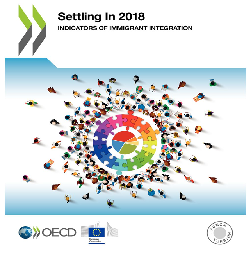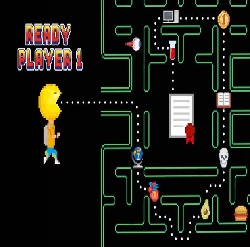Focus 2019 Research, science and knowledge
Read the articles selected for the Sustainable Development Festival 2019
SDGs 4, 10
Equity in education
Source: http://www.oecd.org/
Educational equity involves the reduction of the gaps related to the socioeconomical condition of the students, helping them develop from early age positive attitudes towards education. Disadvantaged students but equipped with socioemotional resilience do better academically.
Read more:
https://read.oecd-ilibrary.org/education/equity-in-education_9789264073234-en#page1
SDGs 4, 10, 8
Good Jobs for All in a Changing World of Work
Source: http://www.oecd.org/

The political Strategy for Inclusive Growth is directed in particular to the low- income and low- skilled workers, the groups more at risk of exclusion. Therefore it promotes a growth-friendly environment, flexibility and skills as the layers of resilience in rapidly changing labour markets.
SDGs 4, 8
Higher education is about transformation
By Paul Ashwin
Source: University World News, 13 April
Measuring the quality of education only by the labour market outcomes of graduates reproduces an elitist vision of higher education. Its transformative potential is in how the knowledge acquired has changed students’ view of the world and the sense of themselves.
Read more:
https://www.universityworldnews.com/post.php?story=20190408084550435
SDGs 4, 16
Humanitarian action for children 2019
Source: https://www.unicef.org
Children growing up in a conflict or in emergency are the most exposed to traumatic events and violence seen as the normality, which will be impacting their whole development. Humanitarian programmes help children to restore their sense of stability and normality also through education initiatives.
Read more:
https://www.unicef.org/sites/default/files/2019-01/Humanitarian-action-for-children-2019-eng.pdf
SDGs 4, 8, 9
The future of work? Work of the future
Source: The European Commission
The first thing to shape the AI which we want is to reform the educational models and time and the learning paradigms for all, young and adults. Only this way we can prepare the world of work to the digital transition, and adapt us to the different impact it will have in the long and short term.
Read more:
https://ec.europa.eu/epsc/sites/epsc/files/ai-report_online-version.pdf
SDGs 4, 8, 9
How to equip graduates for the future
By Anna Mckie
Source: Times Higher Education, 7 March

In a work world ever more fluid , the future employees are required a flexible range of transferable problem-solving skills, but academic teaching is not ready to the cognitive transformations of the fourth industrial revolution.
Read more:
https://www.timeshighereducation.com/features/how-equip-graduates-future
SDGs 4, 3, 9
Children and Young People’s Mental Health in the Digital Age
Source: http://www.oecd.org

Although it is not clear the distinction between cause and effects in the relation between a greater (mostly night-time and emotional) use of social media, and anxiety and depression in children and youngs, social media have a large impact on their psychic health , which can be also positive, if their use is moderate.
Read more:
SDGs 4, 5
Thanks to education, global fertility could fall faster than expected
Fonte: The Economist, 31 January

The decline in fertility is a trend resulting also in the poor countries, and after some demographers it is underestimated even in the UN projections. In a long-term time, it is closey linked with education, even more than to contracception. Education gives women the capacity to question their cultural norms.
Read more:
SDGs 4, 5, 10
SIGI 2019 Global Report
Source: http://www.oecd.org/
The gender parity contributes to the economic growth in objective terms, and is the result of policies that are translated in laws against the sexual discrimination, although the social and family norms are even more pervasive than the law and condition all the cycle of life of the woman in many cultures.
Read more:
https://read.oecd-ilibrary.org/development/sigi-2019-global-report_bc56d212-en#page1
SDGs 4, 5, 10
Gender equality in R&I: 20 Years of EU activities and still a long way to go
Source: https://eua.eu
The picture of gender equality today is far more complex than twenty years ago. Despite the important advancements in the European average the more and more sophisticated analyses developed in the research sector with the endorsement of the EC show a gap between lower and higher innovators.
Read more:
SDGs 4, 5, 9
Maximising opportunities, minimising risks-meeting the digital challenge for girls and boys
Source: EIGE
This research shows how digitalisation is affecting both young and adult population, offering opportunities to increase gender equality but also bringing risks sexually connotated. Although social media have a transformative power, they can also replicate gender bias and norms.
SDGs 4, 5, 9
Telling SAGA: improving measurement and policies for gender equality in science, technology and innovation
Source: Unesco
The Stem and Gender Advancement (SAGA) is a project developed by Unesco to enhance the advancement of science through increased women’s participation in research. The gender dimension is an important aspect of sustainable development and is expression of a human right.
Read more:
https://unesdoc.unesco.org/ark:/48223/pf0000266102
SDGs 5, 8
Equal Pay International Coalition
Source: oecd.org
Equal Pay International is an ILO organism, which joins the forces of the UN Women, and the OECD, to orient towards gender parity the simple but not easy 2030 Agenda goal of equal pay for work of equal value.
Read more:
https://www.equalpayinternationalcoalition.org/
SDGs 5, 8
Women, Business and the Law
Source: https://www.worldbank.org/
Women don’t have the same rights of men when they take decisions that affect their career, their economic condition or the balance between private life, family and work. This report tells the progress made in 10 years by national legislations toward the parity of working women.
Read more:
https://openknowledge.worldbank.org/bitstream/handle/10986/31327/WBL2019.pdf
SDGs 5, 16
Integrating a Gender Perspective into Human Rights Investigations
Source: https://www.ohchr.org
The OHCHR in its mandate to contribute to the realization of all human rights for all people has the task to investigate and report all discriminations based on sex. The Gender Equality Policy delivers a gender perspective through the whole spectrum of human rights.
Read more:
https://www.ohchr.org/Documents/Publications/IntegratingGenderPerspective_EN.pdf
SDGs 8, 16
World Employment Social Outlook
Source: ILO
In the ILO’s centenary, this report focuses on the goal of decent work for all as a prerequisite of social justice. Yet a majority of the actually employed 3.5 billion people suffers from the lack of the material conditions of a decent living and without chances for a human development.
Read more:
SDG 8
Work for a brighter future
By the International Labour Organization
Source: http://asvis.it/
The goal of decent and sustainable work requires an approach which goes beyond making the human capital fit to the new digital economy, but intends to harness the technology for a broader human-centered development and representation of workers, and the improvement of living standards.
Read more:
SDGs 8, 10
Globalization 4.0-What it means and how it could benefit us all
By Klaus Schwab
Source: World Economic Forum, 5 November 2018

What is at stake in the Globalization 4.0 is the improvement of the human condition, through an economic growth directed to the public good and the roots of inequalities, and propped up by global norms, conventions and policies able to address the change given by the dematerialisation of the production.
Read more:
SDG 9
High-Level Expert Group on Artificial Intelligence
By the High-Level Expert Group on Artificial Intelligence
Source: European Universities Association
The topic of this paper is the trustworthyness of the A.I. in terms both ethical and of performance. Despite of not expressing the EC’s official position on this point, it lays the foundations for an human-centered approach in the direction of a trust –based relation with the new technologies.
SDGs 8, 9, 10
What the fourth industrial revolution could mean for education and jobs
By Andreas Schleicher,
Source: oecd.org, 22 January

Education has to take from digitalization all the tools and strenghts, to be a source of democracy rather than of inequalities. Education must change with technology, but we have to run the race with artificial intelligence through our emotional skills and human values.
Read more:
SDGs 8, 9, 10
Automation will make huge demands on universities
By Geoff Maslen
Source: University World News, 27 March
After a report published by the Mc Kinsey&Company in Australia, one 46% of existing job places will be automatized by 2030, but the drammatical consequences of this fact on the work conditions of millions will be restrained in those that have a tertiary education.
Read more:
https://www.universityworldnews.com/post.php?story=20190327122657763
Info
- Pubblicato il : 29/05/2019 Modificato il : 29/05/2019

